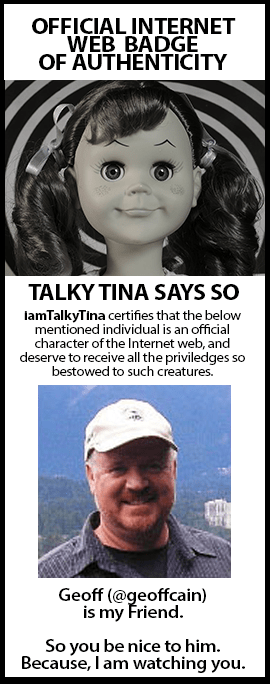 Image via WikipediaOpen textbooks are textbooks that are released with an open license, preferably with a Creative Commons “attribution” license. The textbooks under that license should be free to students and free to instructors to download, reuse, and remix. In other words, the least restrictive license possible. If an author spends years of hard work developing ideas, why should he or she just give them away? There are a lot of reasons why , but they do not have to just give it away. There are a number of compensation models including grants, stipends, release time, tenure, etc. There is still a paradigm in this culture where corporations will be happy to pay for your ideas, repackage them, and sell them to others for a high price, and yes, you may even see some of that money. The problem is that the corporate business model is no longer sustainable. It will be for a while, but at one point, you have to accept that fact that by participating in that model, we are participating in a model that is more and more exclusive. Students have to walk away from the table because of the costs of education in general and the cost of textbooks in particular. There are ways to compensate authors for their work and cutting out most of the middle-man. There are commercial models for open textbooks but unless they are, in the words of the Open Textbook bill “made available free of charge to, and may be downloaded, redistributed, changed, revised, or otherwise altered by, any member of the general public” then they are only kind of open. Commercial corporations will still be screening the content, screening the authors, controlling the access, and setting the price. Why should an academic community give that much power to the book trade? There is too much concern about making the model sustainable for corporations and not enough concern for making education open for students.
Image via WikipediaOpen textbooks are textbooks that are released with an open license, preferably with a Creative Commons “attribution” license. The textbooks under that license should be free to students and free to instructors to download, reuse, and remix. In other words, the least restrictive license possible. If an author spends years of hard work developing ideas, why should he or she just give them away? There are a lot of reasons why , but they do not have to just give it away. There are a number of compensation models including grants, stipends, release time, tenure, etc. There is still a paradigm in this culture where corporations will be happy to pay for your ideas, repackage them, and sell them to others for a high price, and yes, you may even see some of that money. The problem is that the corporate business model is no longer sustainable. It will be for a while, but at one point, you have to accept that fact that by participating in that model, we are participating in a model that is more and more exclusive. Students have to walk away from the table because of the costs of education in general and the cost of textbooks in particular. There are ways to compensate authors for their work and cutting out most of the middle-man. There are commercial models for open textbooks but unless they are, in the words of the Open Textbook bill “made available free of charge to, and may be downloaded, redistributed, changed, revised, or otherwise altered by, any member of the general public” then they are only kind of open. Commercial corporations will still be screening the content, screening the authors, controlling the access, and setting the price. Why should an academic community give that much power to the book trade? There is too much concern about making the model sustainable for corporations and not enough concern for making education open for students.
I can give you numerous examples of people embracing a new idea but attempting to solve a problem using the old paradigm. My favorite is a boss I used to have who would ask me to post information on the internet and then look at the webpage and say, “that is great, now print off 60 copies and distribute it out to the other departments.” And we are this kind of cross-roads – we have a perfect storm of technology, ideas, and people, and we are ready for a change. As an instructional designer, I am interested in bringing instructors together to share their work and experiences and letting “textbooks” or OERs be the natural outcome of those communities. Instead of working on a single expensive book that benefits one person (the book publisher), lets foster a community of open scholarship that sustains the on-going work. Maybe we can even mentor students into the process.
The real value to the authors of open texts is that they are not drawing on their own work alone but they are getting access to a community of authors, revisers, practitioners, researchers, and adapters; a community of scholarship that will support the work of the textbook. A commercial textbook cannot take into account the social conditions of your community. A traditional commercial college textbook cannot be adapted to the deficiencies or advantages of the local high school. You can, for a price, however, buy “supplements” which is the commercial publisher of not-quite-entirely-unlike open textbooks hole card. Why let book printers in another state determine the needs of your community? I believe that a community of scholars can support an online English grammar better than any book publisher trapped in the two-year publishing cycle model. These conversations and decisions should be happening in colleges, not corporate boardrooms. Grammar, for instance, should not depend on a single authority, but should be recognized as the dynamic and living voice of the language. A community of open scholarship can take into account the evolution of language that is always going on around us.
We need to recognize the value of having a diversity of opinions working on these problems. Characterizing these kinds of discussions as “bickering about licenses” is just the kind of attitude that does not foster critical academic inquiry which is exactly what is needed for the sustainability and credibility of open textbooks. Critical thinking, apparently, is bad for business. I am not interested in stopping businesses or starting some revolution, but I think this is a great time to bring teachers together as communities of open scholarship (we have the technology, grants, and people) and not allow ourselves to be blinded by the pittance that corporations will offer us to look backwards.
Related articles
- Student PIRGs’ Nicole Allen: Open Education and Policy (creativecommons.org)
- New copyright-like rights considered harmful (creativecommons.org)
- Textbooks: Hope on the Horizon for Students? (q-ontech.blogspot.com)
- Sarah Sather: In The Public Interest : Open Textbooks and the Tech-Friendly Generation (huffingtonpost.com)





